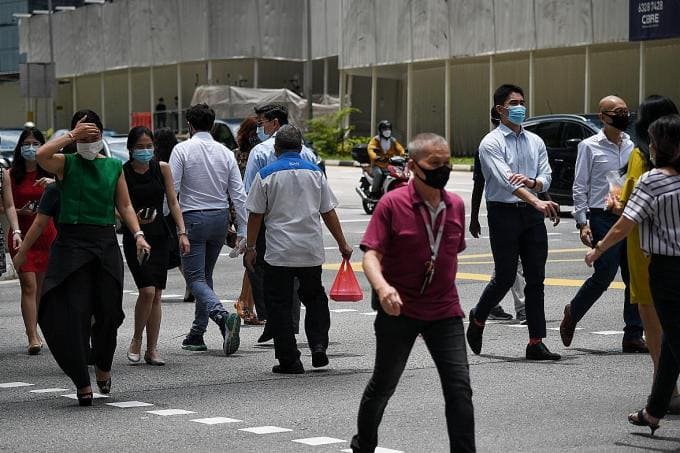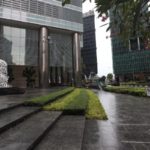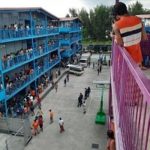Singapore Increase Progressive Wages for Lower Wage Workers by 2023

Within the next two years, progressive wages will cover most lower wage workers in Singapore, and firms that hire foreigners will also have to pay their local employees a minimum of S$1,400.
The Ministry of Manpower (MOM) said on Monday (Aug 30) that it has accepted all recommendations by the Tripartite Workgroup on Lower-Wage Workers. Taken together, the 18 recommendations will expand the coverage of progressive wages – Singapore’s version of a minimum wage – to 82 per cent of lower-wage local workers by March 2023.
The proposals come from a national workgroup made up of representatives from the Government, unions and employers, tasked to improve the wages and well-being of lower-wage workers. These came under the spotlight during the Covid-19 pandemic.
The PWM has been implemented over the last seven years in four sectors, covering 28,000 workers or 10 per cent of the roughly 283,000 employees earning at or below the 20th percentile of wages in Singapore. The four sectors are cleaning, security, landscape, and lift and escalator maintenance.
Between 2014 and 2019, the real median gross wages for workers in the four sectors under PWM grew 31 per cent on average, outpacing cumulative real median wage growth of 21 per cent over the same period.
New Measure to Support Lower Wage Worker
A Tripartite Workgroup on Lower Wage Workers issued its report containing 18 recommendations on Monday, all of which have been accepted by the Government.
Key among them are the expansion of the Progressive Wage Model (PWM) to three more sectors; the introduction of PWM for occupations that cut across sectors, starting with drivers and administrators; and requiring firms that hire foreign workers to pay all their employees a Local Qualifying Salary of at least S$1,400.
Companies today already have to pay this qualifying salary to some local employees, depending on how many foreigners they hire.
A Progressive Wage Mark will also be introduced to accredit companies that are paying all their workers progressive wages.
Since PWM was mandated in the cleaning sector in 2014, it has only been extended to four industries, employing about 10 per cent of lower-wage workers.
In the span of about two years, the new measures will expand coverage of progressive wages to 82 per cent of lower-wage workers.
The qualifying age for Workfare will be lowered from 35 to 30. Workfare incomes supplements are given to Singapore citizens who earn a gross monthly income of not more than S$2,300.
Several business associations have said they support the fresh efforts to raise the wages of Singapore’s lowest income earners, and that the expansion of the PWM benefits these workers in other ways. The PWM for the retail industry will kick in next September, with food services and waste management following in 2023
Who consider to be includes in lower wage worker in singapore?
Lower-wage workers refer to full-time residents earning a gross monthly salary (excluding employer CPF contributions) at or below S$2,033 in 2020. This is the 20th percentile gross monthly salary of full-time employed residents.
Among the full-time lower-wage workers, 73 per cent are employees, while the remaining 27 per cent are self-employed. The progressive wages will only apply to employees.
They are found mainly in domestically oriented industries, such as administrative and support services in many sectors, food & beverage services and retail trade.
Nearly half of the lower wage workers are aged 55 and above, of which a large majority do not have post-secondary education.
Increase of Wages for Foreign Workers in Singapore
From September 2022, all firms employing foreign workers will have to pay all their local employees at least the Local Qualifying Salary, which is currently set at S$1,400.
The Local Qualifying Salary is used to determine the number of local employees that count towards a company’s foreign worker ratio. Different industries have different foreign worker quotas; for example, companies in the services sector have to pay 13 locals S$1,400 or more before they can hire seven foreign workers to fulfil its quota of 35 per cent.
From Sep 1 next year, any firm employing foreign workers will have to pay at least the minimum salary to all its workers before it can hire any foreigners.





